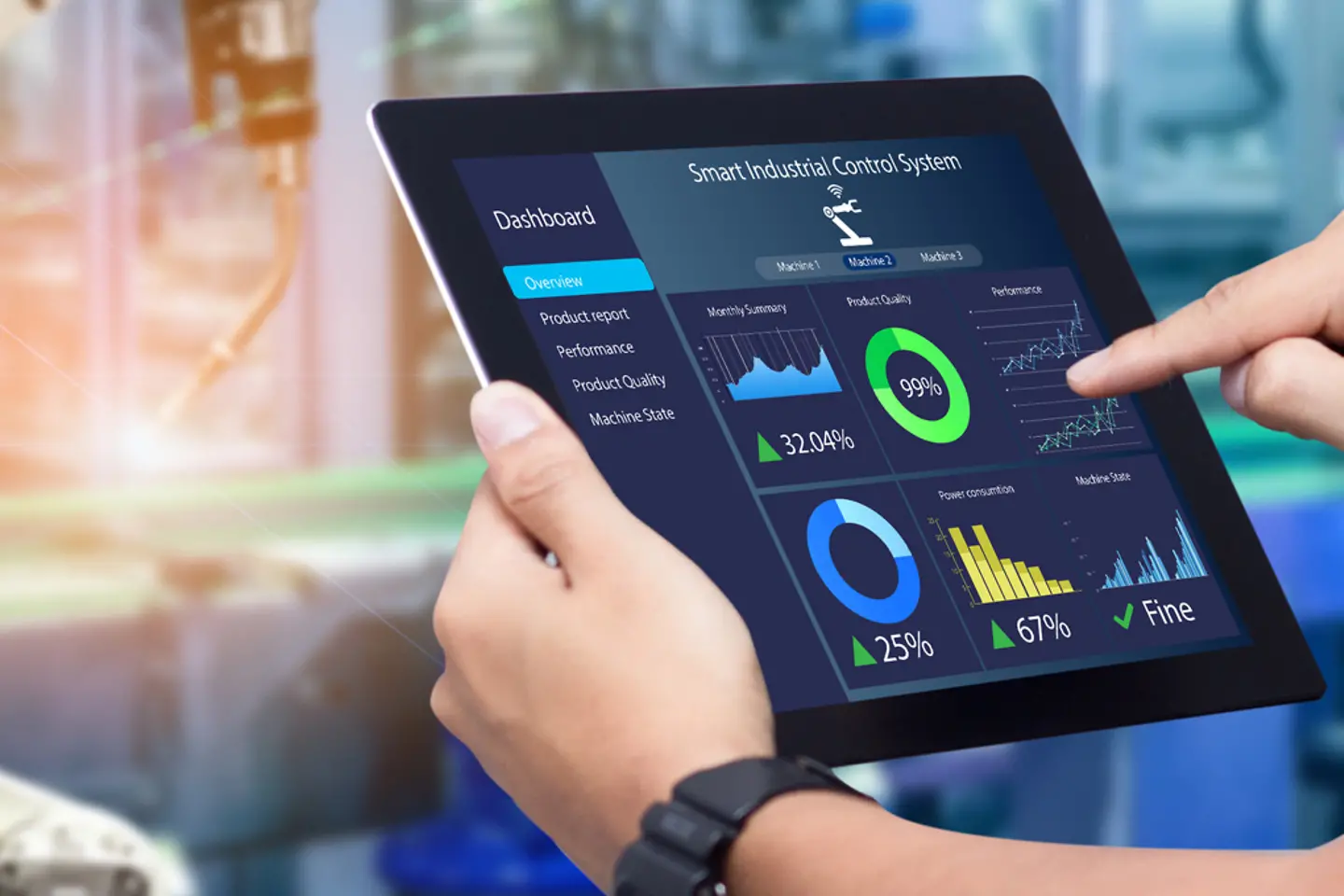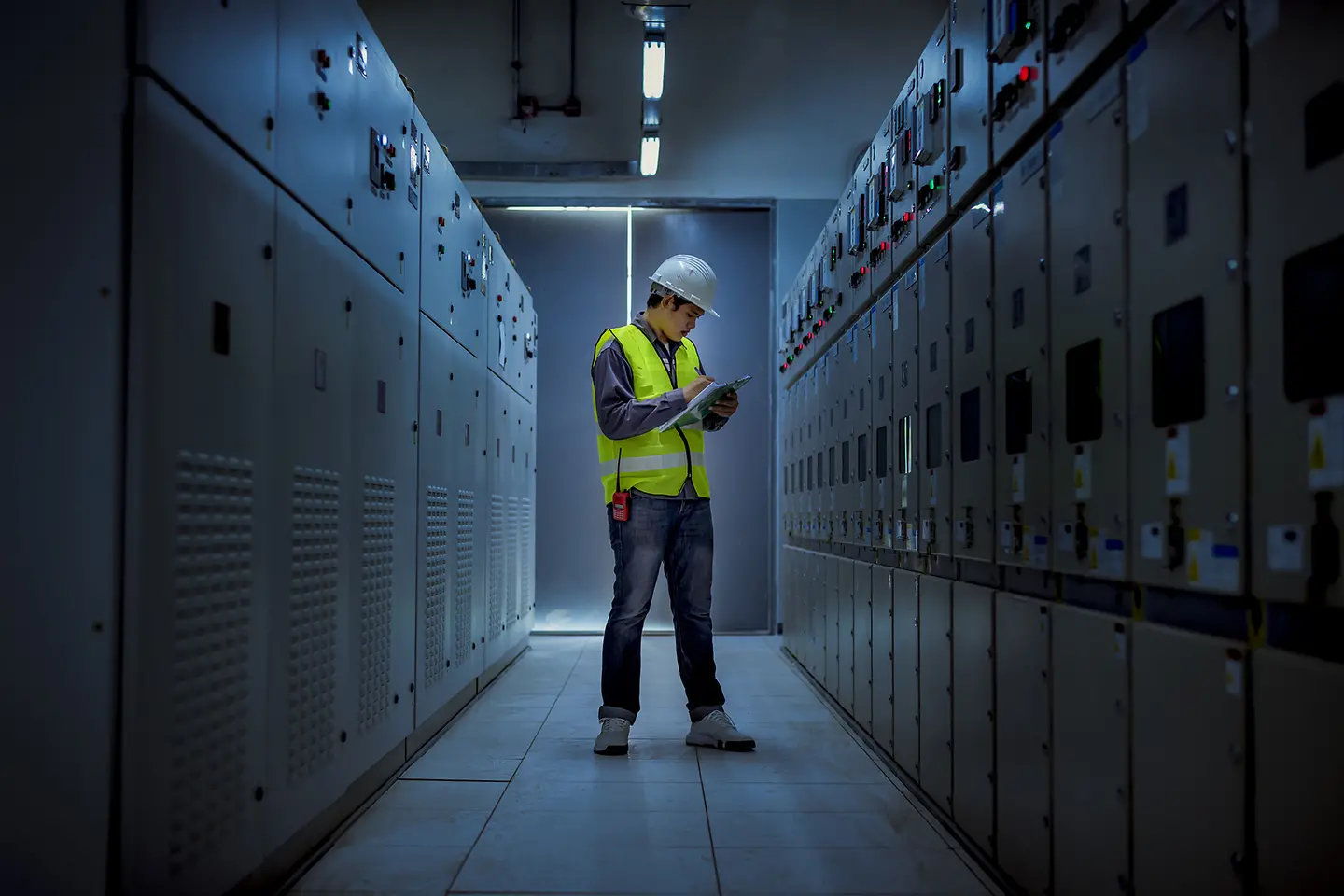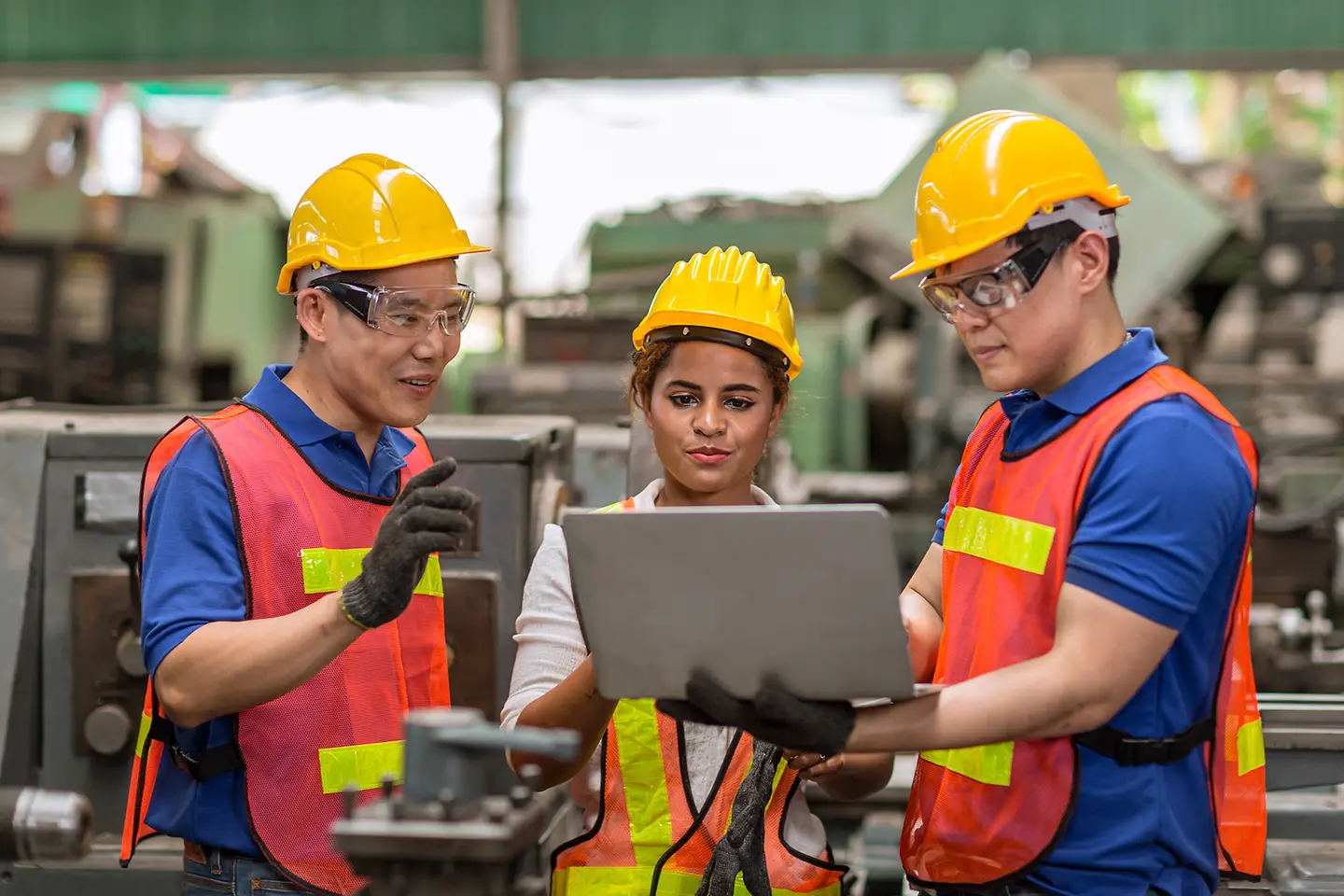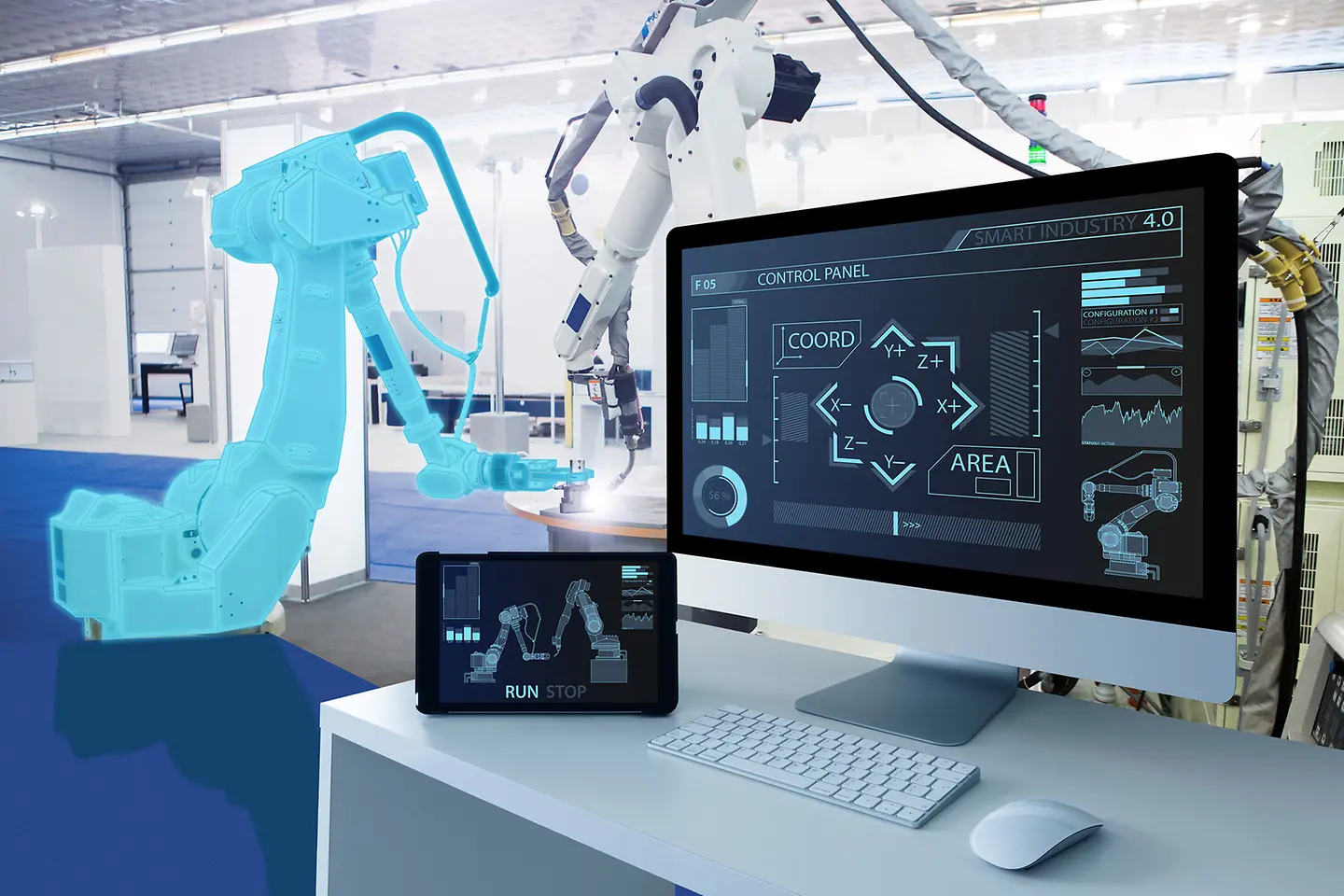

Unlike the industrial revolutions that have come before it, the fourth industrial revolution (which also goes by the name of Industry 4.0) brings with it all the promises of digitalisation and the risks as well.
Industry 4.0 is commonly defined as “the current trend of automation and data exchange in manufacturing technologies,” covering a broad spectrum of connected technologies like cloud computing, the Internet of Things, and manufacturing AI that make “smart factories” possible.
A 2020 GSMA Industry 4.0 survey forecast manufacturing and telecommunications to be the top Asia-Pacific (APAC) industries to benefit the most from Industry 4.0 adoption; countries like Australia, Japan, Malaysia and Singapore see manufacturing as one of the areas that Industry 4.0 can significantly add competitive advantages to.
Transitioning to smart manufacturing via Industry 4.0 is inevitable, but so are potential issues that come with digitisation, such as cyber risks.

APAC’s growth potential in the 4th industrial revolution, regardless of the business size, is immense. Rapid advancements in Industry 4.0 technology in the manufacturing sector, for instance, are already delivering outsize benefits to manufacturing firms, as a recent Industrial Transformation Asia-Pacific event found.
This includes connected infrastructure’s ability to overcome formerly intractable problems in the manufacturing process, and the ability to open up alternative resources for sustainable production. As supply chains become bigger and more complex, these advancements become more critical in providing transparency and resilience.
The latter is particularly important for manufacturing businesses, which are prone to experiencing supply chain disruptions every 3.7 years due to events such as pandemics, financial crises, or ships getting stuck in the Suez.
According to McKinsey & Company's Karel Eloot, another driver for Industry 4.0 adoption in APAC includes increasing customer centricity. Businesses are increasingly trending towards making the customer the focal point of all decisions related to products, services and experiences.
This might mean using AI and IoT to improve customer engagement throughout the lifecycle; or leveraging ecommerce platforms to get better customer insights. However it’s executed, the goal is to create greater customer satisfaction, loyalty and advocacy.

The shift to digital in manufacturing is not just the future - it’s already here. However, as manufacturing systems scale up and increase in complexity, so does the need to implement digital systems that not only ramp up production and all involved processes, but also those that are sustainable, customer-oriented, and well-guarded against cyber risks.
In an IBM report on 2021 cyber attacks, APAC was shown to be particularly vulnerable to attacks in that year, with financial services and manufacturing organisations experiencing nearly 60% of the region’s cyber security incidents. Unpatched vulnerabilities were a particularly troublesome issue, causing approximately 50% of attacks in 2021.
With hackers becoming more sophisticated and insidious in their attacks, conventional IT security is no longer adequate. According to the Managed Cyber Defense Security Operation Center (SOC) Singapore, targeted cyber attacks, such as those tailored specifically to the victim, are hardly detectable by conventional IT security. Citing a study by Ponemon and IBM, a single attack cost companies 3.4 million euros on average in 2018.

All security risks considered, Industry 4.0 adoption is still a worthy undertaking. Businesses can ensure greater success by developing a holistic approach towards adoption, and seek guidance from industry experts along the way.
New security solutions are urgently needed to detect targeted attacks early, or counter them as quickly as possible. As rapidly-evolving technology also speeds up the evolution of today’s cyber-threats, companies must often contend with a shortage of employees who can adapt to new risks threatening IT/OT solutions.
Professional service providers like T-Systems can help solve this shortfall, with more than 1,600 certified cyber security experts on hand to help businesses with a shortage of cyber talent. Years of experience running the Asia-Pacific node of T-Systems’ global network of integrated Cyber Defense and Security Operation Centers has equipped them with a broad range of scenarios on how and when these risks occur, consequently putting them in the perfect place to mitigate the damage.
It is then vital to select experts who are well-versed in handling risks firsthand, as well as equipped with the right tools in building and managing a digitalised factory. T-Systems, for example, has IT/OT SOC from Magenta Industrial Security, which can protect IT systems and connected production facilities against attacks; and analyse all security-related information in real time.
It offers a comprehensive security process that can monitor all security areas from a single source - from consulting to integration, down to operating services. With T-Systems’ SOC and other managed cyber defense services in play, businesses can identify compromised systems, services, applications, or identities immediately or in near-time, to introduce countermeasures, avert or minimise attempted attacks and potential economic damage caused by data leaks, impacts on productivity, or a damaged reputation.
Factory owners and managers can be rest assured that they are up to date with the latest industry-specific standards which might otherwise be too complex for them to take on on their own, especially if their IT/OT is not primed to solve issues by themselves.
As connectivity is a distinct key feature of a digital society, Industry 4.0-forward industries must inevitably deal with the cyber risks that come with greater digital dependence. To better navigate the uncertainties and reap the rewards of taking on I4.0 adoption, businesses must plot a careful way forward, with the help of trusted advisors who are experts at digital transformation.
Expert help from partners like T-Systems can help APAC manufacturing concerns realize their full potential: achieving the full projections for growth in the region, by leveraging their partner’s expertise and experience in setting up a digital factory, no matter the size and geographical location and considerations.
Learn more about T-Systems and how we’re helping manufacturing enterprises anticipate and systematically mitigate cyber risks from the outset, and successfully navigate their digital transformation journey in the long term.